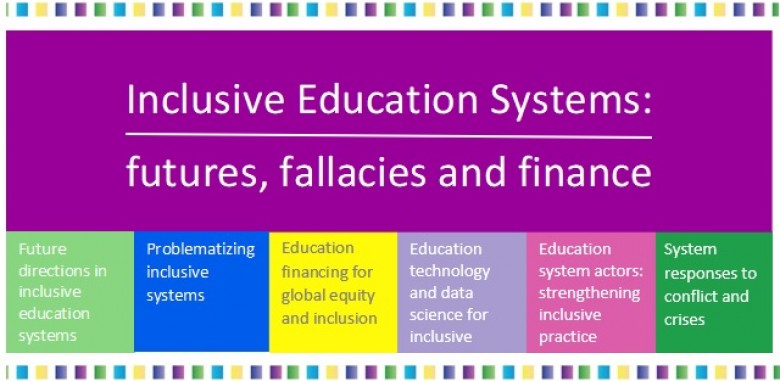
Inclusive Education Systems: futures, fallacies and finance
Reforming systems to meet the education and training needs of all learners requires additional investment and flexibility across the board: early childhood development, formal education, technical and vocational training, higher education and adult education. How can global and national finances be mobilised in effective ways to enable the necessary reforms for inclusive education to take place?
UKFIET's 2019 conference will explore these ideas through a number of themes:
- Future directions in inclusive education systems
- Problematizing inclusive systems
- Education financing for global equity and inclusion
- Education technology and data science for inclusive systems
- Education system actors: strengthening inclusive practice
- System responses to conflict and crises
VVOB presents a paper 'Teaching for All: Strengthening Inclusive Teaching Practices in South Africa and Rwanda'. 18 September, 8:30 am - 10:30 am (room 9 - ACER)
Teaching for All: Strengthening Inclusive Teaching Practices in South Africa and Rwanda
Abstract: approved
In recent decades, Rwanda and South Africa have come to grips with the discriminatory practices that once denied particular groups access to (quality) education. In both countries, elaborate policies were put in place to ensure that all learners – no matter their background, ethnicity, religion, gender and/or (dis)ability – can enroll in, remain in and complete school. Currently, more learners than ever are enrolled in primary education, while secondary education is following suit. Yet, many Rwandan and South African children are not achieving the intended learning outcomes because of the systemic, pedagogical, physical, extrinsic and/or intrinsic barriers they face. As a result, repetition and drop out rates are high.
With inclusion a policy priority in both countries, this presentation puts forward the argument that to achieve quality education for all, we need teachers putting inclusive policies into practice – teaching for all. Many Rwandan and South African teachers, however, are unsure of how to effectively enact inclusive teaching practices that enable learning for all. Equally important, research has shown that teachers’ attitudes and stereotypes inform their expectations of, and hence teaching practices towards, learners belonging to stigmatized groups to the detriment of the latter. Often, these pupils already face an educational disadvantage as they belong to the most vulnerable and marginalized groups, including rural adolescent girls, children with (learning) disabilities, or socio-economically deprived children.
In response, the Rwandan Ministry of Education (MINEDUC) and the South African Department of Basic Education (DBE) have combined efforts with VVOB – education for development to strengthen inclusive teaching practices among primary and secondary school teachers in Rwanda and South Africa primarily, but not exclusively, through in-service continuous teacher professional development. In this presentation the outcomes of and insights gained from these efforts are shared, the challenges encountered are discussed, and promising ways forward are identified.




